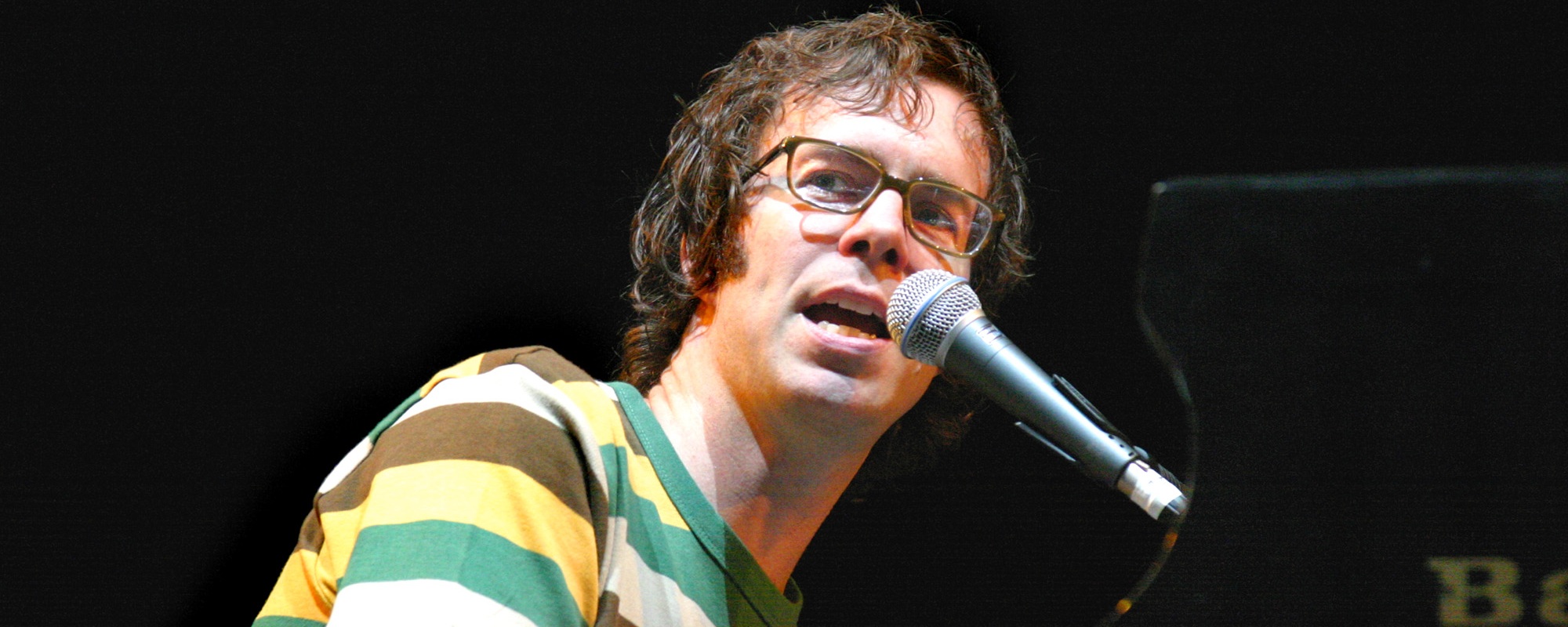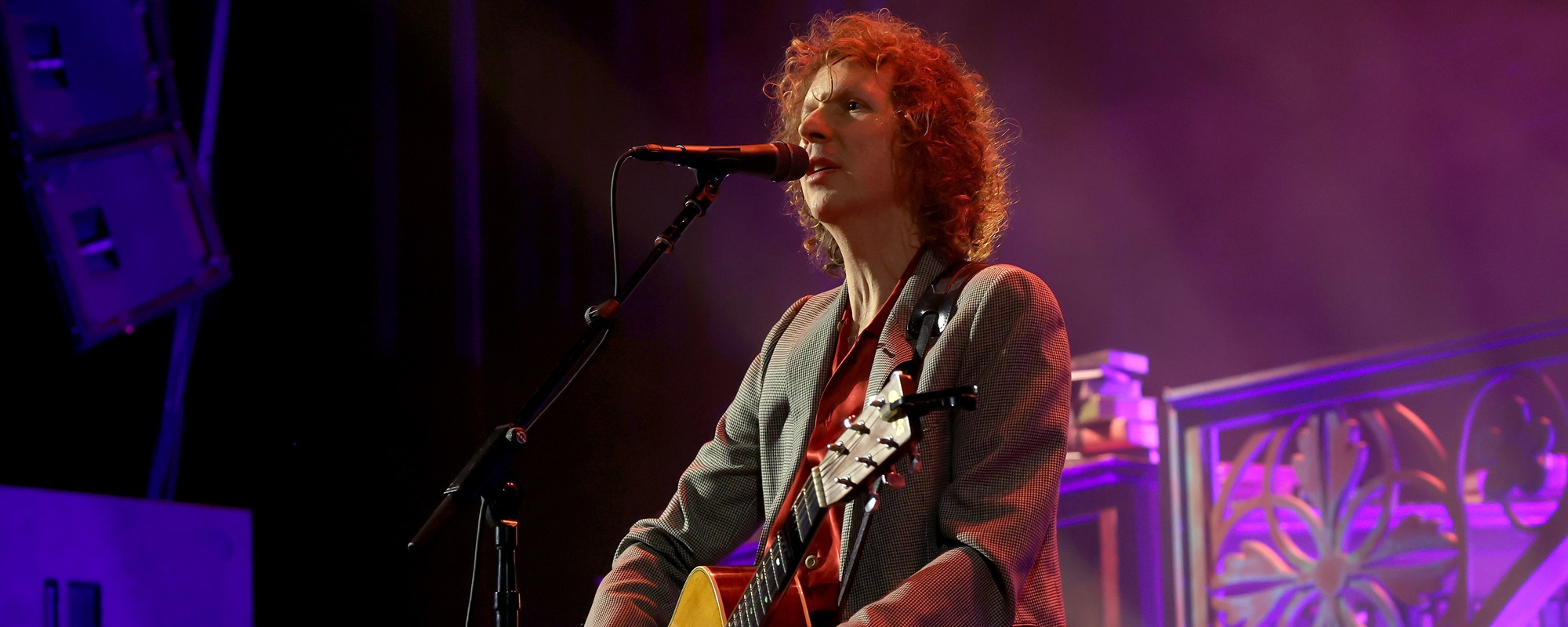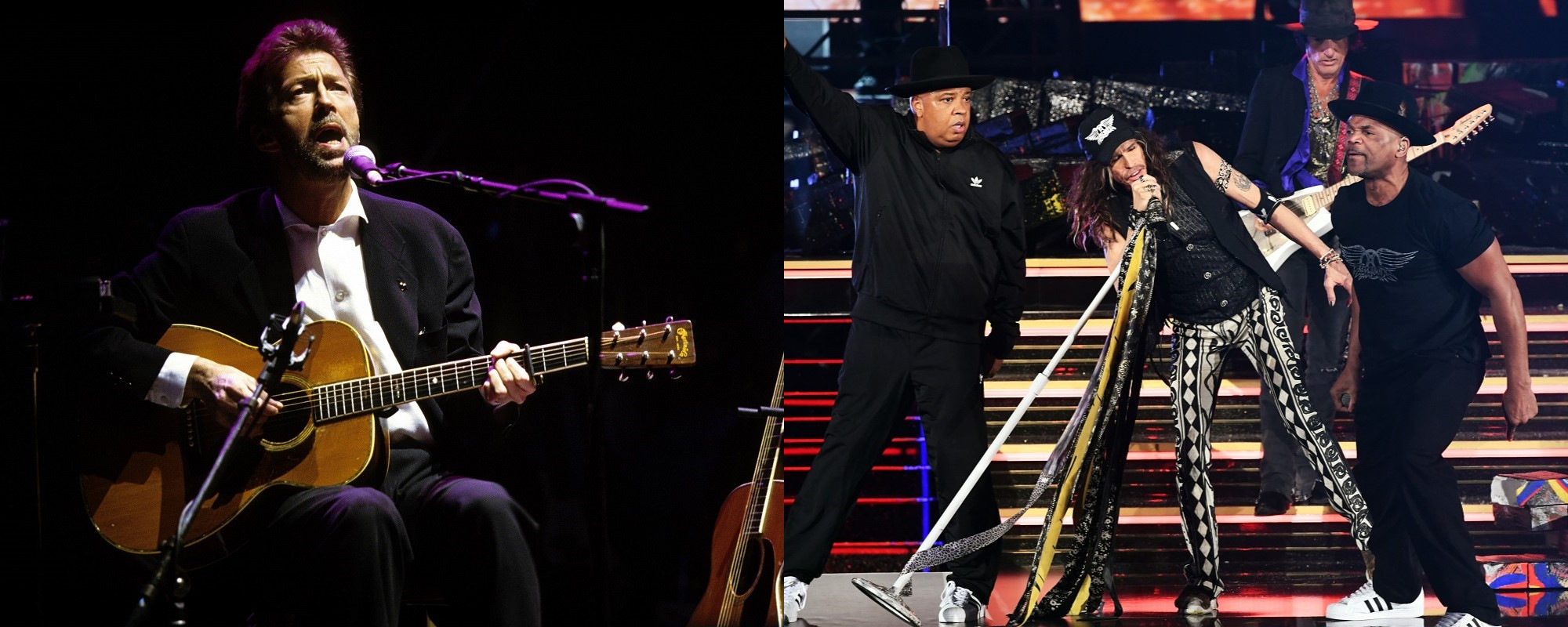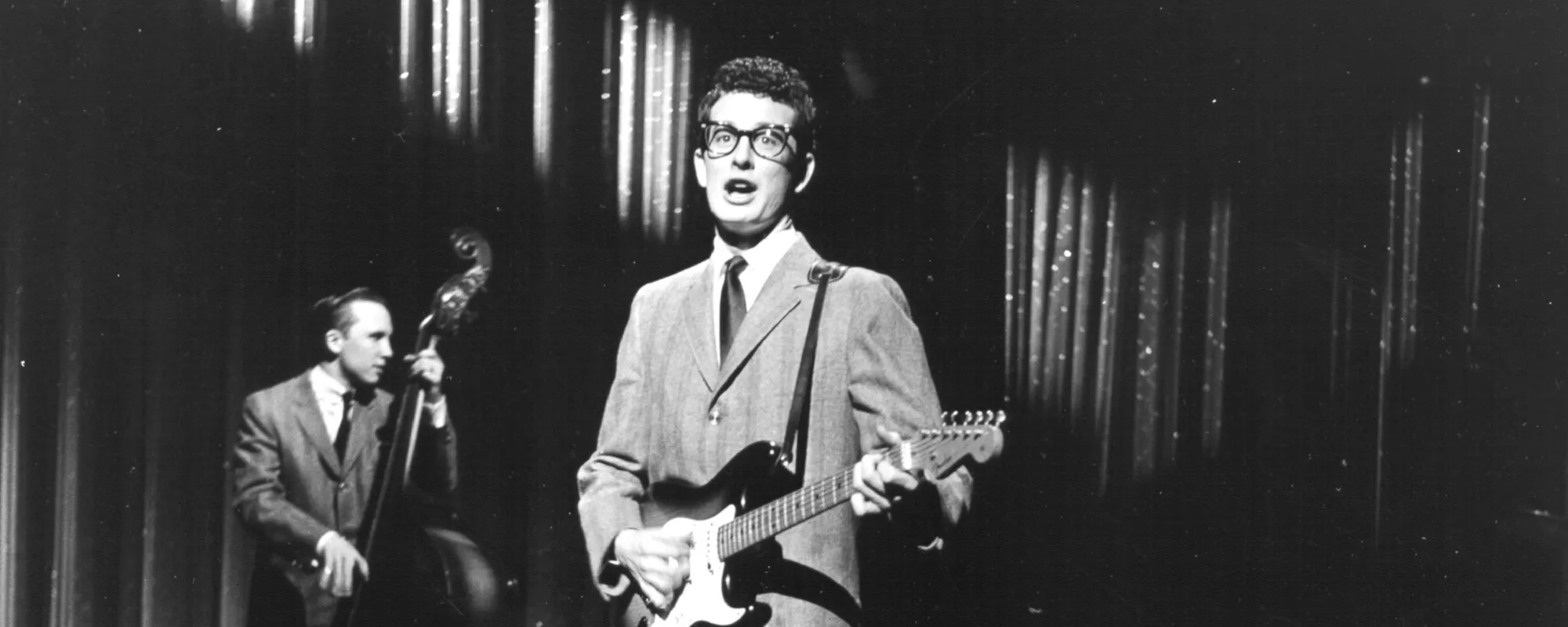It’s always a bit of a mystery why a band with a lot of success in one pocket of the world struggles to break through to other regions. And when it does happen, it’s interesting to examine why a certain song was able to make that leap when others couldn’t.
Videos by American Songwriter
In the case of the British legends Depeche Mode, they had already amassed eight Top-40 hits in their native UK before finding any success in the U.S. Let’s look back at the circumstances and the song that finally managed to get it done for them in America.
In UK “Mode“
The genesis of Depeche Mode can be found in a band briefly known by the somewhat clunky moniker Composition of Sound. Vince Clarke and Andy Fletcher, who knew each other from school and had played together in other groups in the late ’70s, formed this collective, and were soon joined by Martin Gore. When Dave Gahan came aboard on vocals, the early lineup of Depeche Mode was set.
They wisely changed their name to Depeche Mode (based on a French fashion magazine), and it wasn’t long before their synth-based sound carved out a niche. Their second single “New Life” went to No. 11 on the UK charts.
That started an impressive run of successful singles (along with a few hit albums as well) that wasn’t even interrupted when Clarke, the band’s original chief songwriter, split after making their debut album Speak & Spell in 1981. Martin Gore took over main songwriting duties, and the band didn’t miss a synthetic beat.
Extraordinary “People”
For all their success in the UK, the sole impression the band made in the U.S. during the first few years of their existence came on the dance charts. That all changed in 1984 with the lead single off their album Master and Servant. “People Are People” would break down any remaining U.S. resistance, thanks to airplay on college radio. Almost a year after it was released as a single, the song peaked at No. 13 on the U.S. pop charts.
“People Are People” boasted the band’s irreverent touch with a rhythm bed, as it sounded like all sorts of kitchen appliances were used to make the crashing noises you hear. There’s also some nice interplay in the vocals, as Gahan broods his way through the main sections, only to be complemented by Gore’s higher-pitched countermelodies.
Perhaps the reason “People Are People” made such a dent, aside from the thrillingly catchy music, was the direct approach to subject matter that was quite universal. Some would argue the song is a diatribe against racism, while others might say it’s an antiwar screed. In any case, the slogan-like lyrics hit home: I can’t understand / What makes a man / Hate another man.
Moving on From the Breakthrough
“People Are People” is an example of a song that, while integral to a band’s success, might not accurately represent what said band is about. Both Martin Gore, who wrote the song, and Dave Gahan, who sang it, subsequently expressed mixed feelings about it in terms of how it measures up to the rest of their catalog. The fact the band stopped playing it live after the ’80s is evidence of that.
Interestingly enough, Depeche Mode struggled for a while to get back to that commercial peak in the U.S., even as they released a series of highly acclaimed albums and singles. I wasn’t until 1990, and the massive album Violator, that the band returned to the U.S. Top 40. They did so with three singles, including “Enjoy the Silence,” which remains their biggest American hit after reaching No. 8.
It’s our opinion that Depeche Mode, which now consists of just Gahan and Gore after the 2022 death of Andy Fletcher, should give another listen to “People Are People.” Maybe it’s not as complex as some of the daring work that they’d go on to do. But it’s a perfect slice of pop with a relevant message that most artists would love to have created.
Photo by Fryderyk Gabowicz/picture alliance via Getty Images













Leave a Reply
Only members can comment. Become a member. Already a member? Log in.